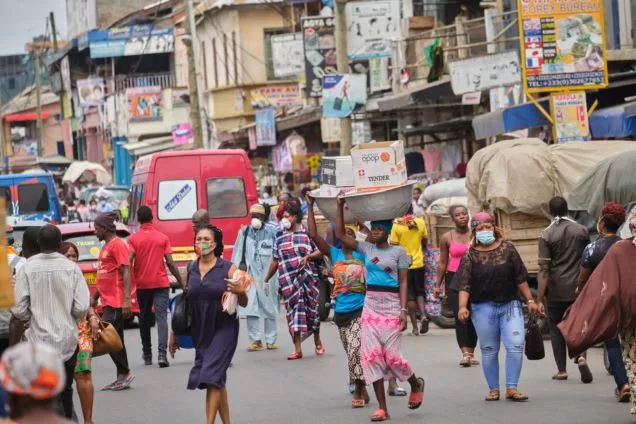Charles Adu Boahen[/caption] Deputy Finance Minister, Charles Adu Boahen, says just as it did for the distressed commercial banks, government intends to bailout savings and loans and other microfinance institutions rumoured to also be on their last legs. A source close to an assessment the central bank is doing said the taxpayer could be looking at coughing up another GH¢10 billion or more, just as in the case of the banks, although the Deputy Finance Minister said the World Bank has already pledged to support the process with “half a billion cedis.” Speaking to the B&FT on the sidelines of the recent World Bank/IMF Annual Meetings in Indonesia, the Deputy Finance Minister, said: “We have asked the Bank of Ghana to do an assessment of exactly what they think the potential gap is, how many institutions are healthy, how many are unhealthy; so, we have an idea of exactly how much financing we need. “The World Bank has been kind enough to increase their DPO [Development Policy Operations], with the intention of assisting us by providing some financing of up to half a billion cedis to assist in this bailout resolution. In addition to that, government will make available the additional funding that may be needed once we understand the problem,” Mr. Adu-Boahen said. According to him, unlike the banking sector, the non-bank financial institution (NBFI) sector has a lot more depositors albeit with smaller amounts. “Not only do you have to identify what the average amount deposited is but you also have to identify the depositors and figure out the best way possible to reimburse them their deposits. This will involve the revocation or closure of all these unhealthy institutions. So, we have to create an entity that would have to step in to take care of all these depositors. We are looking at the right structure to use and the delivery mechanisms, among other things. We definitely intend to sort this out by the end of the year. Cost of bailout Information available to the B&FT indicates that more than a dozen savings and loans companies are in distress, with depositors finding it difficult to access their savings. It is reported that some of these institutions have shut down their operations suddenly, leaving customers frustrated and desperate. Working again According to the Deputy Finance Minister, government is fully committed to the financial sector bailout to make sure that all issues are resolved because “we really believe that until we do that we will not be able to have a healthy financial sector, which will lead to a delay in delivery of credit to the private sector which is a fundamental pillar of our growth strategy. So, we really want the financial sector rehabilitated so that it can work properly and deliver credit to the private sector so they can grow and create the jobs that we need. Now that we are almost done with the banking sector, the next area of focus is the microfinance, savings and loans,” he added. Source: B&FT | Ghana]]>
Recent Posts
- Ghanaian sports journalist Naa Shika Stargurl shines on global stage
- Central Regional Minister to go to Court over her dismissal from NPP?
- NPP accuses NDC of lawlessness, demands urgent re-collation by EC in disputed constituencies
- Anytime there’s vigilance, NDC wins – Malik Basintale
- Akufo-Addo statue in Takoradi suffers partial damage amid controversy
- Current financial year proving challenging for COCOBOD – IMF
- Agona West NPP expels Regional Minister, 282 others for anti-party activities
- Cholera outbreak in Western region claims 14 lives, over 800 cases recorded
Popular Stories
-
Agona West NPP expels Regional Minister, 282 others for anti-party activities
-
Central Regional Minister to go to Court over her dismissal from NPP?
-
Akufo-Addo statue in Takoradi suffers partial damage amid controversy
-
Ghanaian sports journalist Naa Shika Stargurl shines on global stage
-
Current financial year proving challenging for COCOBOD – IMF

ABOUT US
Newstitbits.com is a 21st Century journalism providing the needed independent, credible, fair and reliable alternative in comprehensive news delivering that promotes knowledge, political stability and economic prosperity.
Contact us: [email protected]
@2023 – Newstitbits.com. All Rights Reserved.














